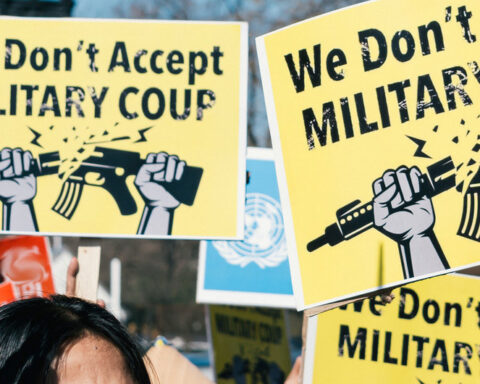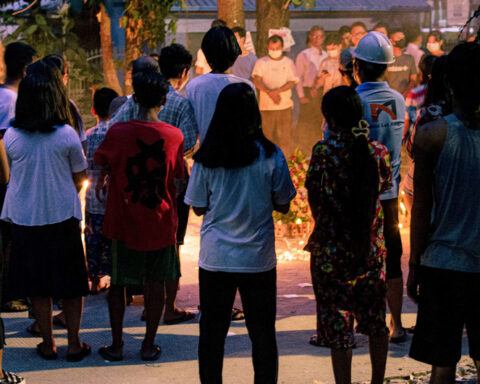BANGKOK – Federal FM Radio went live April 1 at 90.2 MHz. Its targeted broadcasting days are on Thursdays and Sundays.
The unlicensed radio station aims to inform audiences about events throughout the country while educating listeners about federalism – that is, having a national and state government, as opposed to authoritarian, military rule.
A founding member of the program who asked not to be named for security reasons told VOA the broadcast is a new way for people to listen to updated news within the country, without military propaganda.
“When the internet is cut off, the federal radio will be the means of communication and to communicate with each other,” he said.
The station will deliver information to pro-democracy leaders on the ground, and the leaders will be able to use the station to speak to the public, he added. It will be one of “the powerful weapons” against the military government, he said.
“One is to educate, to inform about federalism, to major cities like Yangon,” he said. The first listeners will be in Yangon with plans to expand to the entire nation.
Local and international news will be initially broadcast in Burmese with plans to broadcast in other languages. The organizers say the broadcast is a community, non-profit program made up of volunteers.
One report says that the station will also broadcast messages intended to persuade members of the military to defect.
According to a state-run newspaper report, Myanmar’s Military Council has declared it will “take action” against the program, claiming it’s not a licensed broadcasting organization. The junta has already stripped five independent media companies of their licenses.
Organizers acknowledge there are clear dangers involved.
“We have a high risk for our producers and technicians and citizen journalists, so we try to work, like evasively,” he said.
The Committee Representing Pyidaungsu Hluttaw (CRPH), a board formed to represent the elected lawmakers of the ousted National League for Democracy (NLD) party, has put forth a Federal Democracy Charter, an interim constitution to replace the country’s 2008 constitution that keeps the military as a dominant force in the government.
While the move is widely seen as symbolic, the goal may be to woo the nation’s armed ethnic militias to join forces with the pro-democracy movement.
Veteran activist Moe Thway recently told VOA that members of the public expect a nationwide civil war.
The broadcasting of Federal FM Radio will be a form of objection to the coup, according to one announcer.
“The ultimate goal is toward federal democratic union for our new Myanmar,” the announcer said. “This Federal FM radio is one of the strikes.”
Myanmar, formerly known as Burma, gained independence in 1948 from Britain, but most of its modern history has been governed under military rule.
In 2015, the National League for Democracy party, led by Aung San Suu Kyi, won the country’s first open democratic election.
But in last November’s general elections, the military contested the results and made unsubstantiated claims of widespread fraud.
On February 1, the military, also known as Tatmadaw, removed the NLD government and detained de facto leader Suu Kyi and President Win Myint, who are now facing several charges.
Since the coup, widespread pro-democracy resistance has been met with bullets, armored vehicles and airstrikes. Martial law has also been imposed in several areas.
Thousands of people have been detained and more than 550 killed, according to the Assistance Association for Political Prisoners Burma (AAPPB), an independent non-profit organization formed by exiled political prisoners from Myanmar.






